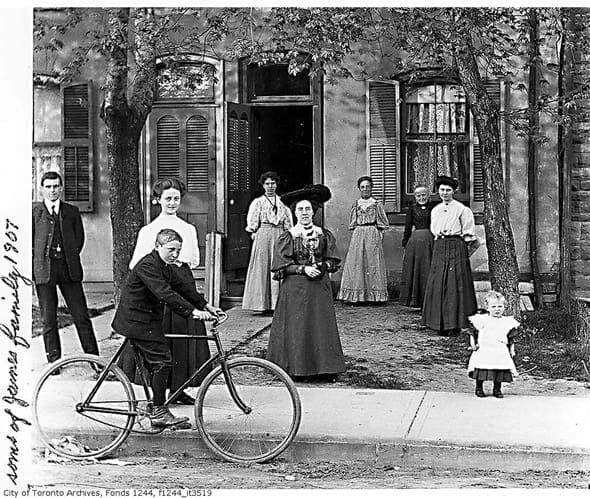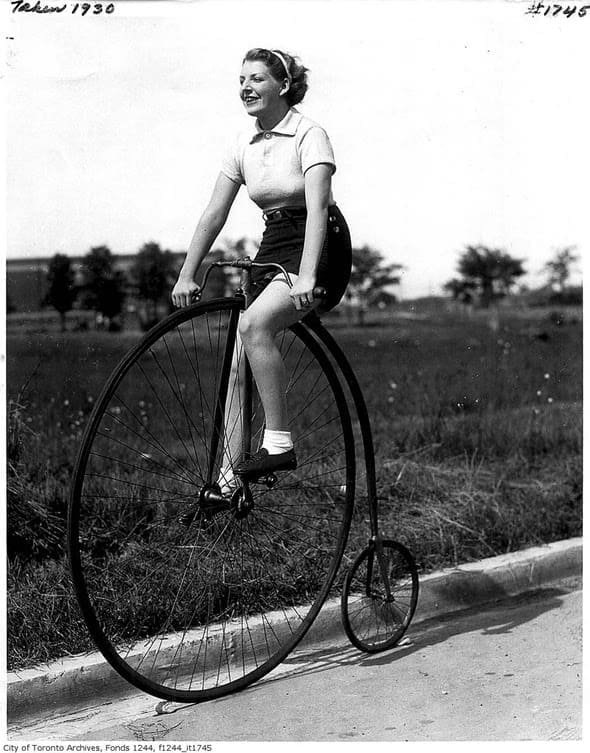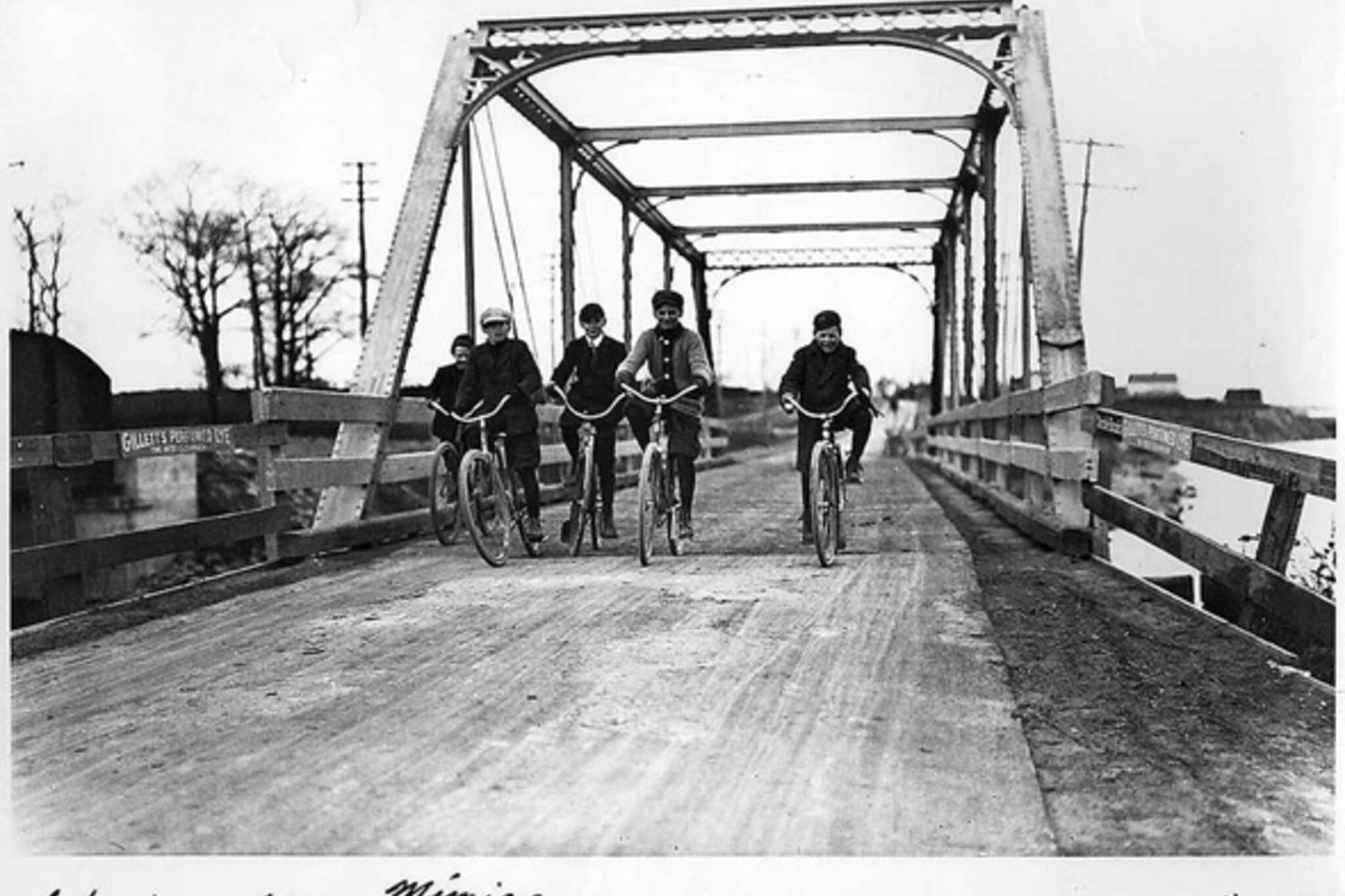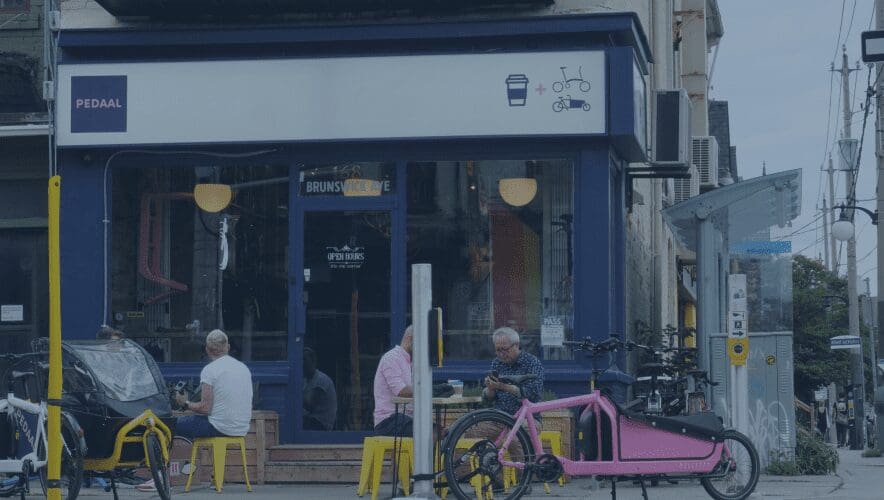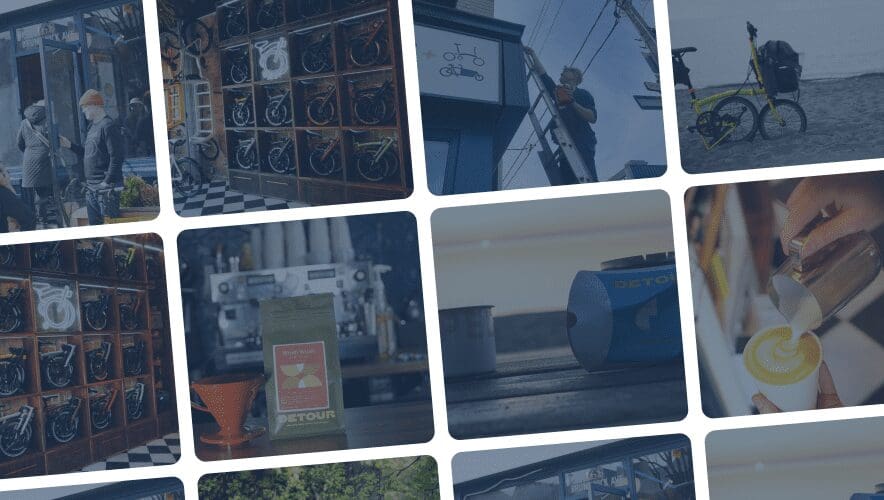On May 22nd, Pedaal was the first stop in a multi-store tour launching Albert Koehl’s new book, “Wheeling Through Toronto.” Albert is a well-known face in the Annex and Harbord Village neighbourhood, and he’s especially known in cycling advocacy as a careful and discerning voice. In many ways, Albert’s work pays homage to those Annex rabble-rousers who once opposed and successfully stopped the Spadina Expressway. At Pedaal, we like to think we also pay homage to the same neighbourhood spirit. For, the fight against the Spadina Expressway was a fight to save walkable and bikeable neighbourhoods from the tentacles of suburbanization. And, in this case, the cyclists won!
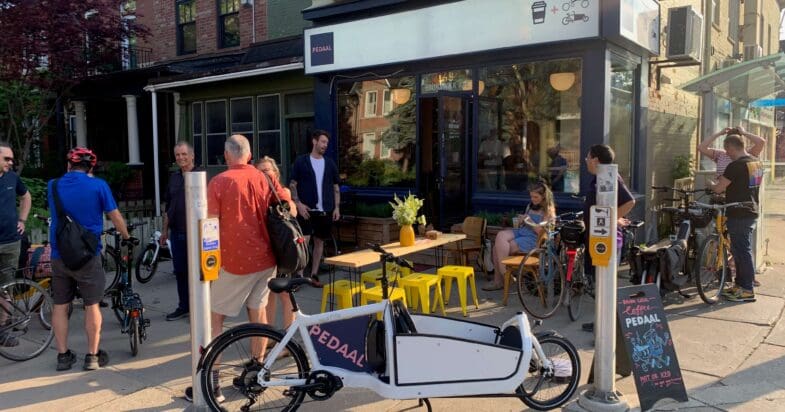
Albert was gracious to name Pedaal as “Toronto’s newest and coolest bike shop,” (thanks Albert!) but the truth is, our history with Albert goes quite a ways back. It was 2007 and we were gathered with other discerning rabble-rousers at the table in Albert’s dining room. Albert, already a longtime member of “Take the Tooker” – a group whose name honoured legendary activist Tooker Gomberg, and whose sole mission was bike lanes on Bloor Street – wanted to start a group that put numbers behind the sudden surge in city cyclists. And, on the marketing side, this group would prove the numbers with a joyful show of force. What emerged from this dining room table was “Bells on Bloor.” a massive parade of bikes that took over Bloor Street, cycle counts on the rooftops of local businesses, and a predecessor to CycleTO – which launched just one year later. As co-founders of Bells on Bloor, we have been tickled to welcome Albert to our “dining room” – a shop that we hope will add its own footnote to Toronto’s bicycle history. Rabble-rousers are always welcome!
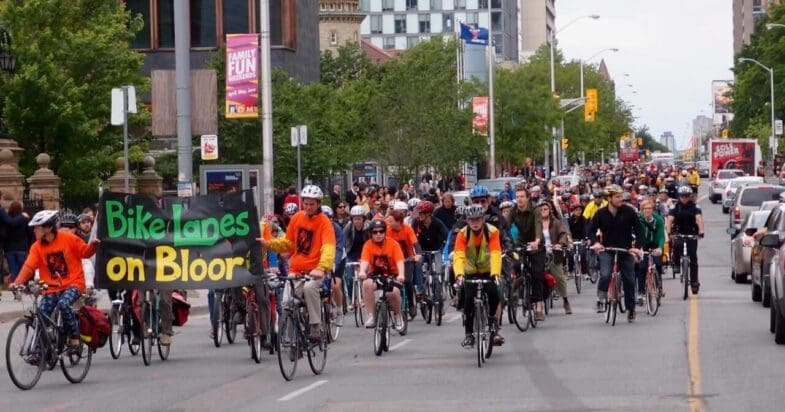
But, if the Bloor Bike Lane made history by literally concretizing Toronto’s bicycle culture, Toronto’s cycling history runs much deeper than this. Albert Koehl’s “Wheeling Through Toronto” is a proper romp through Toronto’s bicycle history, unveiling such gems as the Antelope Bike Company and the so-called “devils strip” – that section between streetcar tracks where cyclists could find quality riding surfaces. In this way, this book launch has been more of a “bike launch.” For, after a short time of socializing on Pedaal’s glorious patio, thirty of us launched our bikes to several key spots that made cycling history. Back at the shop, Pedaal was ready with cold beer from Left Field Brewery and seltzers from our fridge.
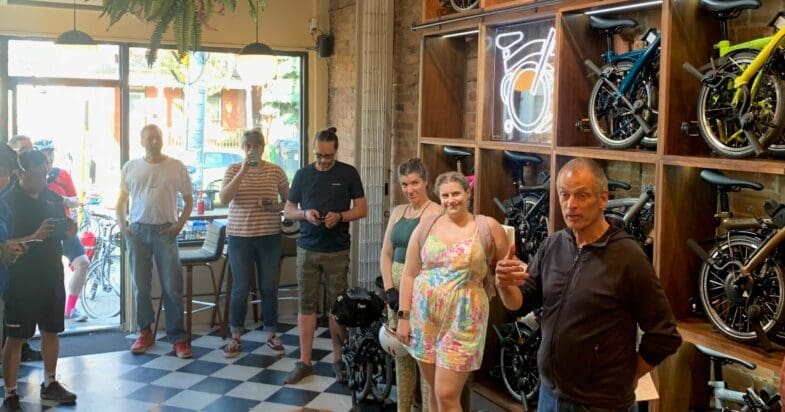
At Christie Pits, Albert made a fine point worth remembering. Recalling his own youth, he remembered a “bike boom” back in the 1970’s, when the old and heavy 3-speed “klunkers” were replaced by the new lightweight “10-speeds.” Noting that these 10-speeds were never quite meant for city riding, they nonetheless caused a surge in cycling that even saw some bike lanes paved; the first being Poplar Plains Road. Noting that it is often the bike itself that leads these surges, he commented that the most recent surge was led with folding bikes, city bikes and cargo bikes. Those who know us might recall that had a little something to do with that!
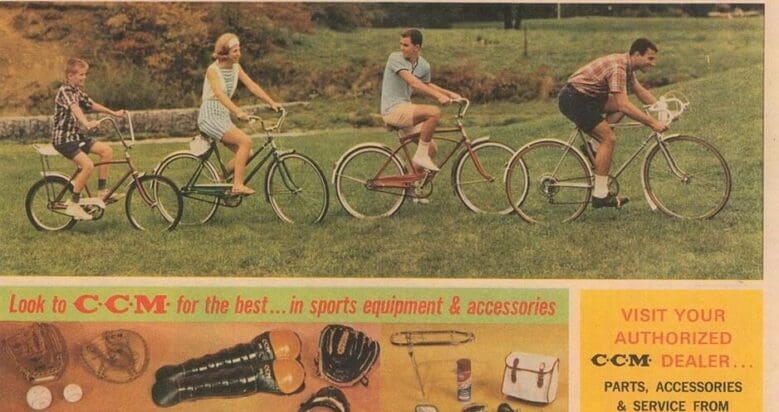
In fact, Pedaal is a more precise continuation of this narrative. At Pedaal, we import the brands that represent the tip of the spear when it comes to leadership, innovation, and social change. Pedaal began in conversation with Brompton and Bullitt with the idea of a community hub that opens a conversation about city cycling. Our cafe isn’t for cyclists, it’s for everyone, and it’s already been a thrill getting people on test rides who really just came in for a coffee.
A big thanks to Albert for letting us fulfill our vision with a book launch that not only speaks to Toronto’s cycling past, but also its future.


